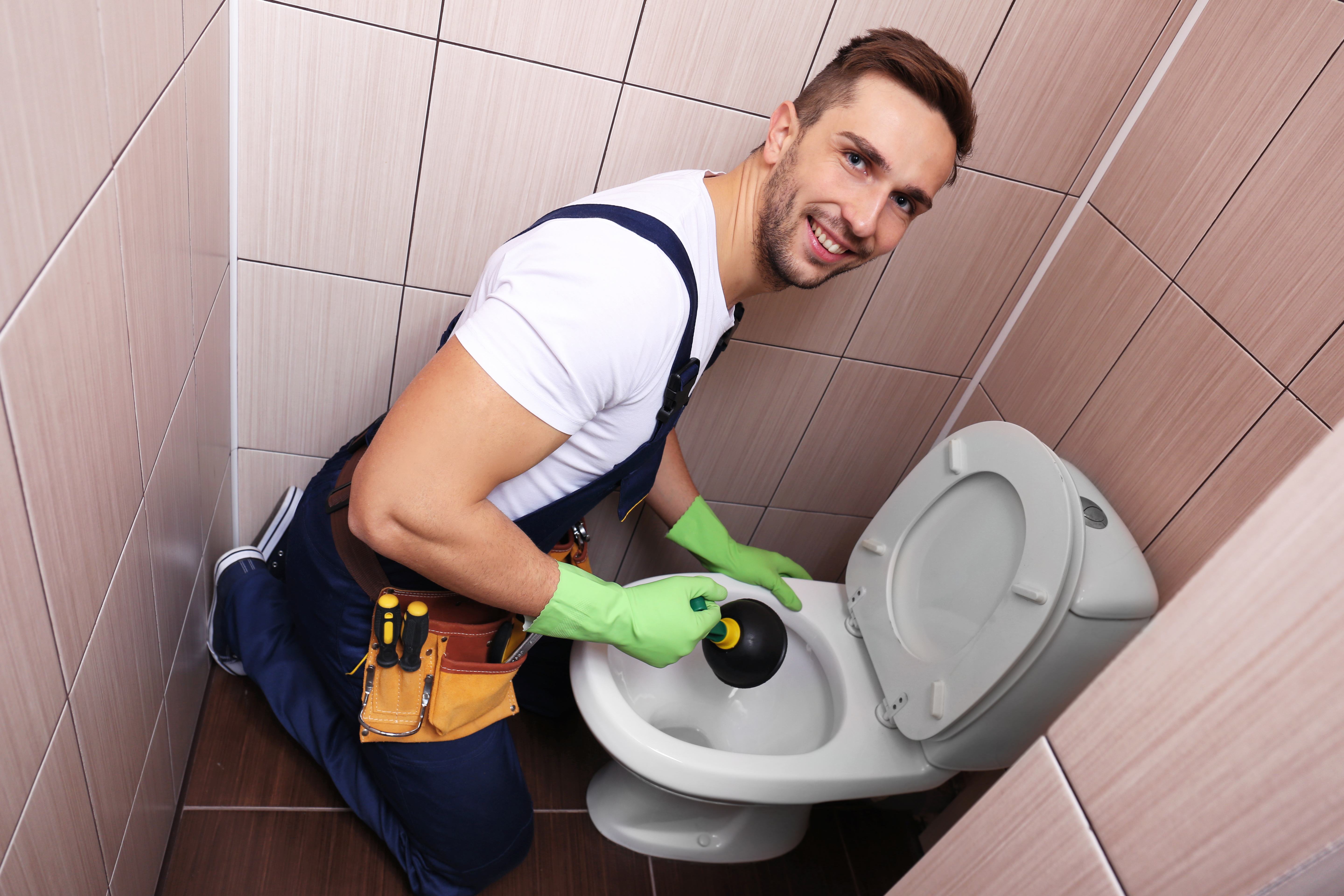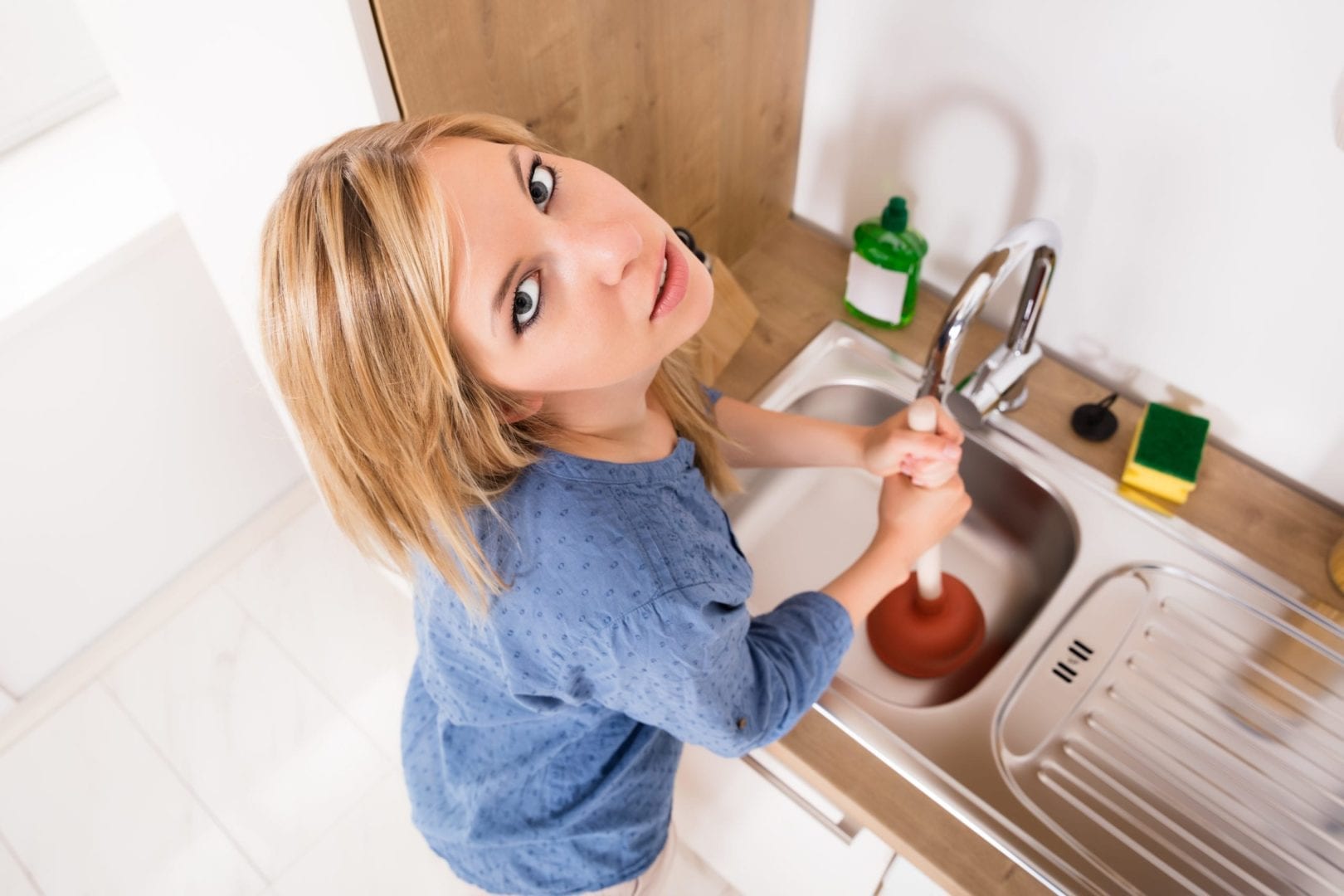Here down the page yow will discover more excellent news all about Tips on How to Effectively Use a Plunger.

Intro
Correct maintenance of home drains is crucial for protecting against obstructions and guaranteeing smooth water circulation. Among the secret tools in every property owner's toolkit is the bettor, alongside different drainpipe cleansers made to deal with persistent clogs efficiently. This post discovers exactly how to utilize plungers and drainpipe cleansers successfully to maintain your drains pipes streaming freely.
Section 1: Recognizing Bettors
Types of Plungers
There are several types of plungers available, each created for various types of drains and clogs. One of the most usual types consist of cup plungers, flange bettors, and accordion bettors.
Exactly How Plungers Work
Bettors service the concept of creating pressure and suction to dislodge clogs. When properly applied over a drainpipe, they produce a vacuum cleaner that can pull out debris or separate blockages.
Selecting the Right Plunger
Picking the right plunger depends on the sort of drain and the nature of the clog. Cup bettors are ideal for sinks and bathtubs, while flange plungers are much better matched for toilets due to their style.
Usual Mistakes with Plungers
Preventing these blunders guarantees effective plunging: incorrect seal around the drain, insufficient force, and not clearing bordering debris.
Area 2: Using Plungers Properly
Preparation
Before plunging, guarantee the bettor covers the drain completely and creates a limited seal. Clear any kind of visible particles around the drain opening.
Technique
Start with gentle plunging motions to construct suction. Increase stress gradually, using a stable rhythm. Repeat as needed up until the drainpipe removes.
Troubleshooting Tips
If diving doesn't function, try adjusting the seal, using oil jelly for a far better seal, or utilizing a different sort of bettor.
Area 3: Recognizing Drain Cleaning Company
Kinds Of Drainpipe Cleansers
Drain pipes cleansers can be chemical or enzymatic. Chemical cleaners use solid chemicals to dissolve blockages, while chemical cleansers use natural enzymes to break down organic matter.
How Drainpipe Cleaners Work
Chemical cleaners respond with obstructions to liquify them, while chemical cleaners break down organic materials like hair and grease without damaging pipes.
Safety and security Considerations
Constantly wear handwear covers and eye defense when using chemical drain cleaners. Ensure ample ventilation and adhere to producer directions thoroughly.
Eco-Friendly Alternatives
Think about utilizing vinegar and baking soda or enzyme-based cleaners for environment-friendly options that are more secure for pipelines and the atmosphere.
Section 4: Utilizing Drainpipe Cleaning Company Successfully
Application Strategies
Put chemical cleansers directly into the drainpipe opening. Enable them to help the recommended time prior to flushing with warm water. Enzymatic cleaners ought to sit overnight.
Precautions
Prevent blending various sorts of cleaners, as this can create hazardous fumes. Never utilize chemical cleaners combined with a bettor, as splashing can take place.
Dealing With Persistent Clogs
For persistent clogs, take into consideration using a pipes serpent or calling a specialist plumbing to prevent damages to pipelines.
Final thought
To conclude, understanding how to use plungers and drainpipe cleaners properly is essential for preserving healthy and balanced plumbing systems. By selecting the right devices and methods, home owners can deal with minor blockages and prevent significant pipes problems down the line.
How To Properly Use A Plumbing Snake To Clear Drains
When any drain clogs in our home arise, we tend to gravitate toward the plunger and little else. In cases where the plunger and its vacuum-created pressure are not able to clear clogs, many immediately move to harmful chemicals or simply call their plumber to fix the issue.
we’re happy to help with all drain cleaning needs and concerns. This includes informing you on a few other home remedies you may have at your disposal for minor to moderate clogs, one of which is the use of a plumbing snake. Many people have never used one of these before – let’s go over the steps to take when your drain clogs and you have a plumbing snake available.
Attempt Plunger Use
The first step here, as we noted above, should indeed be to grab your plunger when you notice a drain clog and attempt to resolve it this way. If you’re unsure how to use a particular type of plunger, our plumbers can answer any questions you have. If this doesn’t do the trick, however, you move on to the snake.
Locate And Prepare Snake
A plumbing snake is a metal or plastic device that’s generally about a quarter of an inch thick. It’s design with significant extensions, meant to reach down into your clogged drain and push the clog out. Snakes also contain drain augers that will latch onto and push stubborn blockages.
If your plunger doesn’t clear a clog, locate your snake and bring it to the drain in question. We also recommend keeping a bucket nearby to collect the clog once you pull it out, plus we’d advise wearing goggles and possibly protective gloves.
Feed Snake
Once you’re ready to go, feed the snake slowly down the drain, using the crank device it comes with to keep it moving until it finds the clog. Once this happens, much of the clog will be latched onto the coil so you can pull it out, while the rest will simply break up and flow downward.
Detach Debris
Remove the snake slowly from the drain, and once you’ve done so, pick off any debris that’s stuck to the coil. This is another area where wearing gloves is a must.
Flush Drain
Finally, take a few minutes to ensure the snake has done its job correctly. If you’ve been using it on a toilet, flush the toilet a couple times and make sure everything flows well. If you’ve used it on a different drain, flush it with some room temperature water.
https://www.mybuddytheplumber.com/blog/how-to-properly-use-a-plumbing-snake-to-clear-drains/

Application Strategies
Put chemical cleansers directly into the drainpipe opening. Enable them to help the recommended time prior to flushing with warm water. Enzymatic cleaners ought to sit overnight.
Precautions
Prevent blending various sorts of cleaners, as this can create hazardous fumes. Never utilize chemical cleaners combined with a bettor, as splashing can take place.
Dealing With Persistent Clogs
For persistent clogs, take into consideration using a pipes serpent or calling a specialist plumbing to prevent damages to pipelines.
Final thought
To conclude, understanding how to use plungers and drainpipe cleaners properly is essential for preserving healthy and balanced plumbing systems. By selecting the right devices and methods, home owners can deal with minor blockages and prevent significant pipes problems down the line.
How To Properly Use A Plumbing Snake To Clear Drains
When any drain clogs in our home arise, we tend to gravitate toward the plunger and little else. In cases where the plunger and its vacuum-created pressure are not able to clear clogs, many immediately move to harmful chemicals or simply call their plumber to fix the issue.
we’re happy to help with all drain cleaning needs and concerns. This includes informing you on a few other home remedies you may have at your disposal for minor to moderate clogs, one of which is the use of a plumbing snake. Many people have never used one of these before – let’s go over the steps to take when your drain clogs and you have a plumbing snake available.
Attempt Plunger Use
The first step here, as we noted above, should indeed be to grab your plunger when you notice a drain clog and attempt to resolve it this way. If you’re unsure how to use a particular type of plunger, our plumbers can answer any questions you have. If this doesn’t do the trick, however, you move on to the snake.
Locate And Prepare Snake
A plumbing snake is a metal or plastic device that’s generally about a quarter of an inch thick. It’s design with significant extensions, meant to reach down into your clogged drain and push the clog out. Snakes also contain drain augers that will latch onto and push stubborn blockages.
If your plunger doesn’t clear a clog, locate your snake and bring it to the drain in question. We also recommend keeping a bucket nearby to collect the clog once you pull it out, plus we’d advise wearing goggles and possibly protective gloves.
Feed Snake
Once you’re ready to go, feed the snake slowly down the drain, using the crank device it comes with to keep it moving until it finds the clog. Once this happens, much of the clog will be latched onto the coil so you can pull it out, while the rest will simply break up and flow downward.
Detach Debris
Remove the snake slowly from the drain, and once you’ve done so, pick off any debris that’s stuck to the coil. This is another area where wearing gloves is a must.
Flush Drain
Finally, take a few minutes to ensure the snake has done its job correctly. If you’ve been using it on a toilet, flush the toilet a couple times and make sure everything flows well. If you’ve used it on a different drain, flush it with some room temperature water.
https://www.mybuddytheplumber.com/blog/how-to-properly-use-a-plumbing-snake-to-clear-drains/

I'm very occupied with Tips on How to Effectively Use a Plunger and I hope you enjoyed the entire blog posting. Are you aware of somebody else who is fascinated about A Guide to Plungers (and How to Use Them)? Take a moment to share it. I am grateful for being here. Return soon.
Call Today